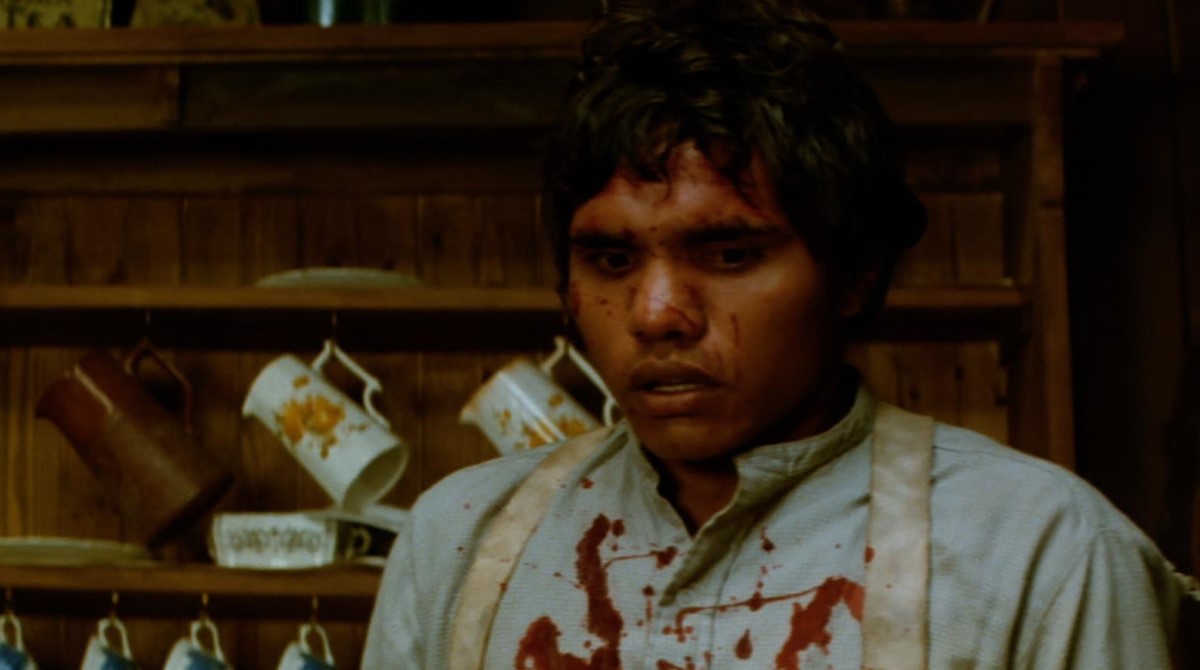by Dwight Macdonald
With this comédie noire Stanley Kubrick clinches his title—one I conceded him years ago—to Best of Show among our younger directors and why stop there? Also Boldest. Of the great nightmare he has made a lafforama that leaves one with a painful grin on the face and a brassy taste in the mouth.
The story is from Peter George’s Red Alert and is similar to that of another, better-known novel called Fail-Safe, so similar that the authors and publisher of the latter have settled out of court a plagiarism suit brought by Mr. George. A crazy American general sends a squadron of nuclear bombers to get in a first strike at Russia; after frantic efforts and unspeakable confusion, the American President manages to recall or have destroyed by the Russians all but one; this gets through and drops its bomb, which triggers off a nuclear death belt the Russians have secretly contrived; the picture ends with the world due to follow shortly. Very funny. What the autopsists call risus sardonicus.
It is amazing that the screenplay (by Kubrick, Mr. George, and Terry Southern—and from what I’ve read of Mr. Southern, I’d guess he is responsible for most of the dialogue and many of the more outrageous touches) should be faithful to this grim outline and more than faithful, you feel they really enjoyed their work.1 It is amazing that Kubrick’s direction should leave no satirical punch pulled: he gives us a Walpurgisnacht of folly and madness in which the principal actors are American generals, an American President and his Cabinet, and a German atomic wizard in their employ; and in which every sacred idée reçue of the cold war—from mother and ice cream to The International Communistic Conspiracy—is methodically raked over with a barrage of satire. It is even more amazing that Columbia Pictures Corp., a perfectly respectable American business enterprise, is distributing this preverted, to borrow from the script, travesty of the American Way of Life (and, of course, Death). As I write, the film has not been publicly shown. The repercussions may be interesting. Or, possibly, not: we have a way of defusing critics by agreeing with them—“I’m glad you asked that question.”2
Dr. Strangelove is a machine constructed to deliver the maximum punch. The intercutting throughout of the American plane’s progress with the “meanwhile back at the air base (or the President’s war room)” sequences, for instance, is beautifully handled for suspense, and the plane’s theme song, When Johnny Comes Marching Home Again, is exactly right in its cockiness and its outdatedness. But it is Kubrick’s direction of the actors that I most admired: he has made them into commedia dell’arte grotesques, but grotesques that take off from a solid foundation of what one uneasily recognizes as our everyday American reality. Peter Sellers, as the President, is disturbingly right: a reasonable, decent little fellow who just wants to live and let live, but who is trapped in the madness of his military and scientific sorcerer’s apprentices. As, his first call on the “red” or “hot” direct phone to the Soviet premier when he stalls, like a wife telling her husband she has wrecked the car, until he finally has to come out with it: “Well, Nikita, you know, the fact is, something very peculiar seems to have happened. …”
But the heart of the film is the military grotesques, and I wonder if Kubrick, even with Columbia Pictures behind him, will get away with it. (If he had only included J. Edgar Hoover!) The two lower- echelon types are stupid, illiterate comballs. Colonel “Bat” Guano (Keenan Wynn) is convinced that the British Group Captain Mandrake—the only sensible military type we see—is either a spy (“What kind of fancy uniform is that?”) or a “prevert” (this must be Terry Southern) and warns him, burp gun in hand, as Mandrake enters a phone booth to call the President: “If you try any preversions in there, I’ll blow your head off!” The commander of the fatal plane, Major Kong (Slim Pickens), is a dim-witted Texan who rises to his big moment when the attack signal comes through: “Ah ain’t much of a hand at makin’ speeches, boys. . . .’’ He then exchanges his helmet for a cowboy’s Stetson, and ends riding the bomb down like a bronco, flailing it with his hat and yelling “Yippee!” The two generals are stupid, illiterate, cornball and crazy. George C. Scott as General “Buck” Turgidson, liaison between the President and the military establishment, gives his best performance to date; he is really a “character” actor, and Kubrick pushes him all the way: such mugging—he has more facial muscles than Lon Chaney! But this is just technique, though always nice to see some in American movies. The great grotesque is Sterling Hayden as the loony general who launches the attack. He is a certifiable madman—there might be some difficulty in committing Buck Turgidson—who orders the bombing as a last resort against “the Communist conspiracy to sap and impurity our vital body fluids” via the fluoridization of American water supplies.
I have never thought much of Mr. Hayden’s acting, but he is very good here, so good as to be more than a grotesque: he is mad but human; one never knows quite what to expect next and so one has a certain empathy. This suggests one of my two criticisms: there are no overtones. All the characters, except Mr. Hayden, roll smoothly along their predestined satiric tracks. It will be objected that the style of the film is abstract satire and that human overtones are therefore not to be expected. Granted, but this brings me to my second objection: there is too much repetition. As, the scenes in the plane: one can have too much of twisting of knobs and readings of dials, even though the satiric point is the contrast between the precision of the means and the lunacy of the ends. There is also too much repetition of character: these are, rightly, comic-strip people, every man in his humor, but since humors are invariable and so incapable of development, there is a loss of interest if they are repeated too much. Yet they must be repeated—that’s part of the joke, too. I recommend the study of Moliere, who in L’Avare, Le Misanthrope and Tartuffe also manipulated fixed, static characters like General Turgidson, but who knew how to tread the narrow path between too much and not enough. Falstaff is the other kind of comic character, fluid and changing as life and so never wearying because each repetition is not quite the same. Hayden is no Falstaff, but the germ is there. And if Kubrick-Southern had been more of a Moliere, their film would have been better. Though it’s quite good enough for these times.
Esquire, February 1964
Correction: I am informed, by Reliable Sources, that I overestimated Terry Southern’s contribution to the script of Dr. Strangelove, specifically that he came in only in the last few weeks, after it had been put into pretty much final shape by Kubrick and Peter George. He added some nice business and some fine touches, but his collaborators were more important than I’d thought. (Mr. Southern’s literary personality is so distinctive that his collaborators tend to be blanked out: Candy is treated by the reviewers as if it were his work alone although the title page clearly states that Mason Hoffenberg is its coauthor.) I was also wrong, as Mr. Brown of California noted in the May issue, about the movie script being faithful to Mr. George’s original novel, Red Alert. I meant the movie was as uncompromising as the novel, which I hadn’t read but had heard about, but I hadn’t realized that Kubrick had converted a “serious” message-novel into a black comedy whose message was all the more really serious, as Lewis Mumford has pointed out, for being transposed into the mode of grotesque satire. My apologies to Mr. Kubrick.
Esquire, September 1964
Notes
1 See “Correction” at end.
2 It was a big hit and there were no picket lines.
Source: Dwight Macdonald, Dwight Macdonald on Movies




